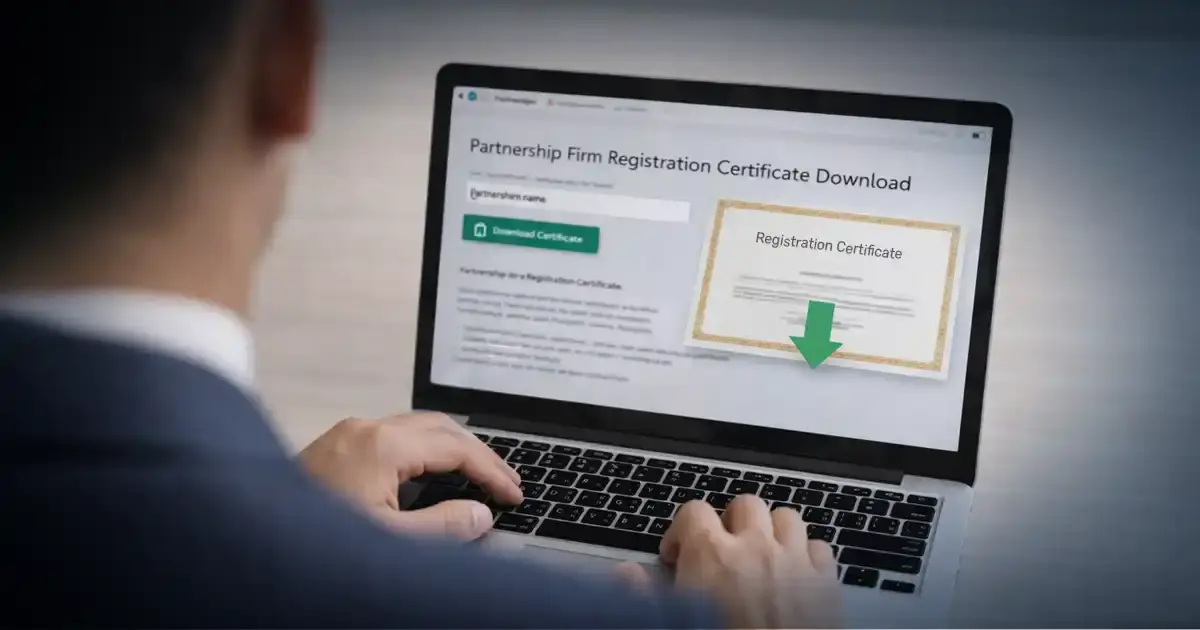
If you’re planning to launch your business and apply for Startup India registration, knowing the list of documents required for Startup India registration is the first crucial step. The Startup India initiative was launched by the Government of India to encourage innovation and support new entrepreneurs. It is managed by the Department for Promotion of Industry and Internal Trade (DPIIT). The scheme offers various benefits, including tax exemptions, funding support, and simplified compliance procedures to help startups grow faster.
Getting DPIIT recognition not only gives your startup access to tax exemptions and government tenders but also enhances credibility and attracts potential investors. On this note, submitting the correct and complete documentation approved by DPIIT is crucial to proving your business’s eligibility and ensuring a smooth approval.
In this blog, we’ll walk you through all the essential documents required for Startup India registration and explain the purpose of each one. You’ll also find useful tips on how to prepare and organize them correctly for quick DPIIT approval.
What is Startup India Registration & Who Can Apply?
Startup India Registration is an initiative by the Government of India under the Startup India Scheme, launched to promote entrepreneurship, innovation, and job creation. By registering with the Department for Promotion of Industry and Internal Trade (DPIIT), startups can access benefits such as tax exemptions, easier compliance, funding support, and intellectual property assistance.
To understand whether your business qualifies for Startup India registration, you need to meet certain eligibility conditions set by the government:
- Eligible Business Structures: Your startup must register as a Private Limited Company, Limited Liability Partnership (LLP), or Partnership Firm. These structures provide legal recognition and ensure compliance with India’s corporate laws.
- Age of the Business: Your startup should be less than 10 years old from the date of incorporation or registration. This ensures that only new and emerging businesses can enjoy the benefits under the Startup India scheme.
- Annual Turnover Limit: The annual turnover of your startup should not exceed ₹100 crore in any financial year since its formation. This helps focus government support on growing businesses that need help to expand.
- Innovation and Scalability: The startup must be engaged in developing or improving products, services, or processes, or should have a scalable business model with strong potential for creating jobs or generating wealth.
- Original Entity Formation: Your business should not be formed by splitting up or restructuring an already existing company. This ensures that only original and innovative startups receive recognition and benefits.
Note: Sole proprietorships and unregistered partnership firms are not eligible for Startup India registration. The startup must be an original entity with at least 51% ownership by Indian promoters at the time of application.
For more information about eligibility and conditions, read the blog on Startup India Registration Eligibility.
What are the Documents Required for Startup India Registration?
Before you apply for Startup India registration, it’s important to ensure all your paperwork is ready and properly organized. Having a complete and accurate set of Startup India registration documents helps you avoid delays and ensures faster DPIIT approval.
Here’s a detailed list of documents required for Startup India registration, explained in a simple and structured way:
Basic Documents (Mandatory for All Startups)
- Certificate of Incorporation or Registration – Issued by the Registrar of Companies (ROC) or Registrar of Firms. It proves that your startup is legally registered.
- PAN Card of the Entity – The company’s or LLP’s PAN is required for tax identification and official verification (not the founder’s personal PAN).
- Business Details – Include your registered office address, date of incorporation, type of business, and main activities.
- Director/Partner/Promoter Information – Provide names, DIN or LLPIN (if applicable), and ID details of all the key members of your startup.
- Brief Description of Innovation or Unique Idea – Write a 200–400 word summary explaining how your startup is innovative, solves a real problem, or has the potential to grow and scale.
- Proof of Concept / Business Plan – You can attach any one of the following:
- Website link or product screenshots
- Pitch deck or presentation
- Video demo or prototype images
- Revenue proof or user traction (if available)
- Website link or product screenshots
Conditional Documents (Depending on Startup Type)
- Letter of Recommendation (if applicable) – Issued by a recognized incubator, industry association, or government body that supports your startup’s innovation.
Note: Earlier, this was mandatory for Startup India registration. Since 2019, it has become optional, but having one from a recognized incubator or accelerator can strengthen your application.
- Funding Proof (if funded) – Documents like investment confirmation from SEBI-registered investors, angel networks, or venture capital firms.
- Patent or Trademark Filings (if any) – Submit copies of patent applications or registration certificates if your startup deals with intellectual property.
- Income Tax Returns (if already operational) – If your startup has been running for a while, attach the latest filed returns to show business activity and credibility.
Documents for Special Cases
| Startup Type | Additional Documents Required |
| Funded Startups | Proof of funding, such as a Term Sheet, Investment Agreement, or Certificate from a SEBI-registered fund. |
| Patent-Based Startups | Copy of Patent Filing or Patent Grant Certificate. |
| For Tax Exemption Requests | Application to the Inter-Ministerial Board (IMB) along with required supporting forms. |
| Incubator-Endorsed Startups | Recommendation Letter from a DPIIT-recognized Incubator or Accelerator. |
Startup India Registration Document Checklist + Ready-to-Use Template
Before uploading your Startup India registration documents on the Startup India portal (startupindia.gov.in), it’s important to have a clear checklist to track what’s ready and what’s pending. A well-organized list of documents required for Startup India registration helps you avoid rejection or delay in DPIIT recognition.
Below is a ready-to-use checklist (you can print or download it) with “Yes/No” options for quick verification:
| Document Name | Required (Yes/No) | Prepared / Uploaded (✓) | Comments / Notes |
| Certificate of Incorporation/ Registration | Yes | ||
| PAN Card of the Company/LLP/ Firm | Yes | ||
| Business Details (Address, Incorporation Date, Nature of Business) | Yes | ||
| Director / Partner / Promoter Information (PAN, Aadhaar, DIN/LLPIN) | Yes | ||
| Write-up on Innovation or Unique Business Idea | Yes | ||
| Proof of Concept (Pitch Deck, Website, Product Demo, etc.) | Yes | ||
| Letter of Recommendation (if applicable) | No (Conditional) | ||
| Funding Proof (if funded) | No (Conditional) | ||
| Patent / Trademark Registration (if applicable) | No (Conditional) | ||
| Income Tax Returns (if applicable) | No (Conditional) | ||
| Office Address Proof (Utility Bill / Rent Agreement) | Yes | ||
| NOC from Property Owner (if rented) | No (Conditional) | ||
| Self-Declaration (Signed by Director / Partner) | Yes | ||
| Application for IMB Tax Exemption (if applicable) | No (Conditional) |
How to Register Under the Startup India Scheme?
Getting recognized under the Startup India (DPIIT) scheme is simple if you follow these steps:
- Visit the official Startup India website and create your account using a valid email ID and mobile number.
- Verify both through OTP and collect all key documents like Certificate of Incorporation, PAN card, and business details.
- Prepare digital copies of the required documents and write a short innovation note describing your business idea.
- Log in to your Startup India account, click “Apply for DPIIT Recognition,” and fill in all accurate company details.
- Upload documents, submit the self-declaration, and review everything before submission.
- DPIIT reviews the application within 7–15 working days; respond quickly if more details are requested.
- Once approved, download your Startup India Recognition Certificate from the dashboard.
- After recognition, you can apply for tax exemptions, IPR benefits, and government funding schemes.
Ensure to know the detailed step-by-step Startup India Registration Process for a smooth application.
What Happens After You Submit Your Startup India Application?
Once you’ve submitted your Startup India (DPIIT) recognition application, your documents and details go through an official review and verification process. Here’s what happens next, and what you should do to stay on track.
Step 1: Application Review by DPIIT
After submission, your application is reviewed by the Department for Promotion of Industry and Internal Trade (DPIIT). The review focuses on:
- Document Completeness: Whether all required documents (Certificate of Incorporation, PAN, innovation write-up, etc.) are uploaded and valid.
- Eligibility Criteria: Whether your business meets Startup India eligibility norms, like being less than 10 years old, having a turnover under ₹100 crore, and being a registered entity (Pvt. Ltd., LLP, or Partnership).
- Innovation & Scalability: The DPIIT checks if your startup is genuinely working on an innovative product, service, or process, or has the potential to create jobs or generate wealth.
Review Time: Typically, the DPIIT takes 7–15 working days to process applications. In some cases, it may take up to 3–4 weeks if clarifications are needed.
Step 2: Responding to Clarifications
If your application needs any corrections or additional information:
- You’ll get an email notification or a message on your Startup India dashboard.
- Review the request carefully and upload the missing or revised documents (like clearer scans, corrected PAN, or updated write-up).
- Submit your response promptly to avoid delays in approval.
Tip: Always keep your login details handy and check your dashboard regularly to avoid missing any communication from DPIIT.
Step 3: Receiving Your Recognition Certificate
Once your application is approved:
- You’ll receive an email confirmation from the Startup India team.
- Log in to your Startup India portal account.
- Go to your “My Applications” section and download the DPIIT Recognition Certificate in PDF format.
- Save it safely; it includes your Startup Recognition Number and serves as official proof of your status.
Pro Tip: Keep both a digital and printed copy of the certificate for record-keeping and for future use in tax filings, funding, or tender applications.
Step 4: Maintaining Your Startup Recognition
Once you’re recognized, there are a few things to keep in mind for ongoing compliance:
- Keep your business records and turnover proofs updated every financial year.
- Maintain proper documentation for audits, tax exemptions, and funding applications.
- If your business crosses the ₹100 crore turnover limit or completes 10 years, your Startup India recognition automatically expires.
- No annual renewal is required, but it’s important to retain all supporting documents used during registration for verification purposes.
Final Thoughts
Getting your Startup India (DPIIT) recognition becomes much easier when you’re fully document-ready. Preparing all the documents required for Startup India registration in advance, like your incorporation certificate, PAN, and innovation details, ensures faster approval and avoids unnecessary rejections or delays. Proper preparation not only saves time but also strengthens your startup’s credibility in front of DPIIT and investors.
RegisterKaro keeps track of your Startup India application from submission to certificate delivery. If DPIIT asks for more details, our team helps you prepare and respond correctly, ensuring smooth approval without unnecessary delays. Stay worry-free, we handle your entire Startup India process from start to finish!
Connect with our experts today and get your DPIIT recognition quickly and stress-free.
Frequently Asked Questions
The key documents required for Startup India registration include:
- Certificate of Incorporation (issued by MCA)
- PAN of the company
- Aadhaar and PAN of all directors/partners
- Brief write-up on the nature of business and innovation
- Proof of concept (pitch deck, website link, or prototype images)
- Registered office proof (utility bill, rent agreement & NOC if rented)
Having these documents ready in digital format (PDF/JPEG) ensures quick and smooth verification during DPIIT approval.




